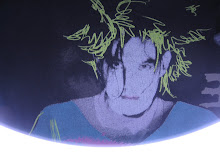Founding Zoland Editor and Publisher Roland Pease works out of Cambridge, MA.
Translation Editor Christopher Mattison recently rooted himself into Princeton, NJ.
Reviews Editor Chloe Garcia Roberts is completing graduate work in Eugene, OR.
Another recent Zoland in-house editor, Erica Mena, is departing Cambridge, MA for Cambridge in the UK.
Other Zoland contributing editors are scattered throughout this thing called globe, and prefer to remain anonymous.
& a Zoland History
Before there was Zoland Poetry, the world knew Zoland Books, the independent literary publishing house founded by Roland Pease, which published literary fiction, poetry and arts-related memoirs for fifteen years before being acquired by Steerforth Press. In that time Pease brought into print a wide range of poets including Ange Mlinko, Bill Berkson, Kevin Young, William Corbett, Lisa Jarnot, Patricia Smith and Anne Porter.
Zoland Poetry is the next incarnation in the Zoland line. It is an annual of contemporary writing from around the globe, consisting of an active web component, and an annual book that is published by Steerforth Press. The first Zoland Poetry annual hit the shelves in March 2007. Each volume is an equal fusion of contemporary English language poetry, works in translation, and interviews with featured poets.
The online arm of Zoland Poetry—www.zolandpoetry.com—includes book reviews of recent poetry collections from here and abroad, original language material for the works in translation, translator essays, and audio clips of select poets.
